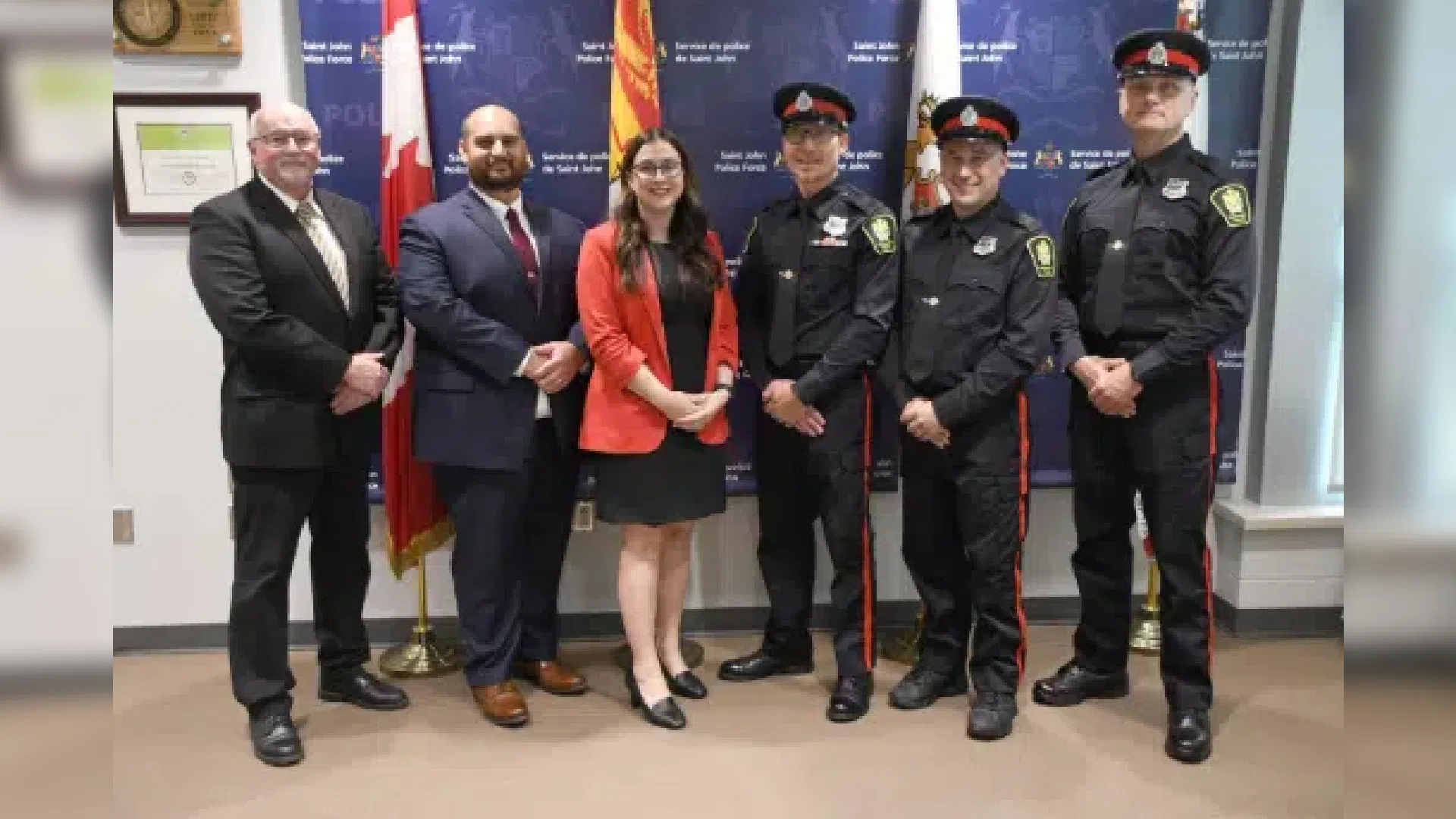Six new auxiliary members have joined the ranks of the Saint John Police Force.
A swearing-in ceremony for the new members was held on Thursday afternoon.
“The Saint John Police auxiliary members have and continue to play a significant role in our community engagement service delivery model,” Chief Robert Bruce said in a news release.
“Enhancing and enriching our city with pride, honour, commitment, and selfless dedication through their sincere sense of volunteerism. They will make a real difference in our organization and community.”
Auxiliary police members help regular officers maintain public safety, engage with the community and promote crime prevention initiatives.
Three of the members are part of the force’s new non-uniform auxiliary division, which was first announced in January.
RELATED: Saint John police look to expand auxiliary program
They will support community engagement initiatives such as career fairs, community events, crime prevention initiatives and public education.
Staff Sgt. Sean Rocca said they will also help with administrative engagement, with one of their focuses being quality assurance callbacks.
“These are calls to members of the public that have called into the police primarily for calls that did not result in files or reports that would go on to be investigated,” Rocca said in January.
“Just making sure that they were satisfied with the service that they received from police. Is there anything else that you think we could have done better? Is there anything in general that you feel the Saint John police could do better in terms of service?”
Uniform volunteers also support community engagement initiatives in addition to law enforcement initiatives such as frontline police operations, traffic campaigns, search and rescue support, and large-scale evidence-based searches.
Members commit to the program for two years and must be willing to volunteer for a minimum number of hours each year — 60 hours for non-uniform members and 100 hours for uniform members.
All volunteers undergo a security clearance, financial and criminal record checks, as well as aptitude testing, a background investigation, a sustainability interview, and an integrity questionnaire and interview.
Uniform members also undergo a medical assessment, fitness testing and a psychological assessment since they are involved with law enforcement initiatives.
Initial training ranges from 35 hours for non-uniform volunteers to 63.5 hours for uniform volunteers, with ongoing training as required.








